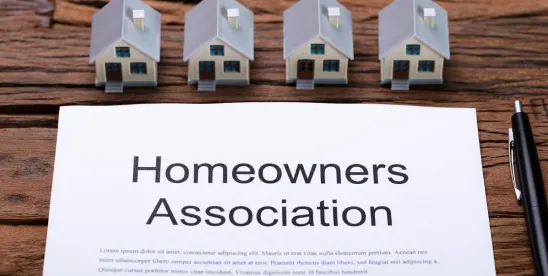Community and homeowners' association managers and board members often walk a fine line when it comes to transparency.
While openness fosters trust among members, there are instances where confidentiality is necessary for legal or practical reasons. Finding the right balance can mean the difference between a harmonious community and one fraught with conflict.
Understanding Your Legal Transparency Requirements in Community Associations
North Carolina law establishes specific guidelines for what records must be available to association members. These requirements vary based on whether the person requesting access is a director or only a regular member and whether the access rights are qualified or unqualified.
Directors generally have broader access rights than regular members. Unless there's a clear conflict of interest, directors are entitled to review all association records of any kind. This extensive access allows them to fulfill their fiduciary responsibilities to the association and make informed decisions.
For regular members, access rights are more limited and fall into two categories: unqualified inspection rights and qualified inspection rights. In both cases, members must notify the association in writing at least five business days in advance of the requested inspection. The association may choose the time and location for inspection, but these choices must be reasonable.
Unqualified Inspection Rights for HOA Members
Community association members have an unqualified right to inspect and copy nine specific types of documents:
- Articles of Incorporation, including all amendments
- Association Bylaws, including all amendments
- Resolutions related to the number or classification of directors
- Resolutions related to member characteristics, qualifications, rights, limitations, and obligations
- Minutes of all membership meetings for the prior three years
- Records of all actions taken by the membership without a meeting for the prior three years
- All written communications to members as a group within the prior three years
- Names and business or home addresses of current directors and officers
- Annual financial statements from the prior three years
For annual financial statements, additional requirements apply. If the statements were audited by a public accountant, the accountant's report must accompany the statement. If they weren't audited, they should include a statement from the president or another authorized person affirming whether the statements were prepared in accordance with generally accepted accounting principles and noting any inconsistencies with previous years' accounting practices.
The association also must make annual income and expense statements and balance sheets available to all members at no charge within 75 days after the close of the fiscal year.
Additionally, members are entitled to receive a statement of their unpaid assessments, fines, and other charges within ten days of making a written request.
Qualified Inspection Rights for Community Association Members in North Carolina
Beyond the documents covered by unqualified inspection rights, members have qualified rights to inspect and copy seven additional categories of records. These rights are qualified because they come with conditions.
The association can only be compelled to provide these documents when members demonstrate they're making the request in good faith and for a proper purpose.
Members also must articulate with reasonable specificity not only what records they wish to examine but also why they need to see them. This means vague requests like "I want to review all financial records" without a clearly stated purpose would not be adequate.
The final requirement creates an important connection: the records being requested must directly relate to the purpose the member has stated.
This three-part qualification process ensures that while members maintain important access rights, they must exercise these rights responsibly and with legitimate aims rather than for harassment or frivolous purposes.
If these requirements are satisfied, members can inspect the following:
- Minutes of all association member meetings
- Records of all actions taken by members without a meeting
- Minutes of all board of directors meetings
- Records of all actions taken by directors without a meeting
- Records of all actions taken by committees acting on behalf of the board
- Accounting records and financial statements
- The association's membership list (with limitations on use)
Beyond Legal Requirements: Strategic Transparency Choices
While legal requirements establish the minimum level of transparency, many associations choose to go beyond these basics to foster trust and engagement.
Here are some strategic choices to consider:
- Document Inclusion in Minutes: One of the most common ways members gain access to documents they wouldn't normally be entitled to see is when those documents are incorporated into meeting minutes. Board members should be mindful of this when deciding what to attach to minutes. Consider whether including detailed reports, correspondence, or other documents serves the association's interests.
- Answering Member Questions. Associations have a statutory obligation to provide documents, but there is no statutory right for a member to get written questions or emails answered or to have a Q&A session with the board or the association manager. Answering questions in meetings or in writing is a choice for the board.
- Voluntary Document Sharing: Boards can choose to share additional documents beyond what is legally required. Being proactive about sharing information can prevent speculation and rumors.
- Open Forums and Town Halls: Regular opportunities for community dialogue can help members feel heard and informed. When planning these events, the board decides whether there will be presentations by the board, manager, accountant, attorney, or other professional and whether there will be a question-and-answer session. Boards should select speakers carefully, as their communication skills and comfort level can significantly influence how information is received.
- Board Meeting Access: While North Carolina law establishes minimum requirements for open board meetings, associations can decide to be more accessible. Some associations open all meetings to members at least in part, while others might allow members to observe but not participate. Streaming meetings for members who are unable to attend in person is an option. Recording meetings is discouraged.
- Enhanced Written Communications: Regular newsletters, email updates, and website postings can keep members informed without requiring them to formally request information. Transparent communication about upcoming projects, rule changes, and community events helps members feel connected and reduces surprises.
Safeguarding Confidential Information in Community Associations
Despite the value of transparency, certain matters must remain confidential for legal and practical reasons.
The association must carefully protect information related to litigation, as public discussion could compromise its legal strategy or weaken its position in court. Comments in a meeting also could create evidence for trial without intending to do so, and public discussion of litigation could impact the association's insurance carrier's coverage position.
Similarly, contract negotiations should remain private until finalized, as premature disclosure could undermine the association's bargaining power or create confusion about terms that are still in flux. Bids for contracts should not be shared, even after the contract is finalized, because sharing may deter future bidding by a potential vendor.
Member enforcement actions present another area requiring discretion, as public discussion of individual violations could accidentally create evidence for trial and potentially expose the association to defamation claims. If the enforcement action involves fines or the other collection of money, discussion of this enforcement action should not occur to avoid state or federal fair debt collection laws being violated.
Personnel matters involving association employees must be handled with the same confidentiality that any employer would provide. These discussions should remain confidential within the board.
Assessment delinquencies also fall into this protected category. Delinquent account information should not be shared outside of the board and with those persons involved in collections.
Board members and managers should approach these sensitive topics with particular care, clearly marking relevant documents as confidential and discussing them only in properly convened closed portions of board meetings. This judicious approach to confidentiality isn't contrary to transparency—rather, it represents responsible stewardship of the association's interests and respect for individual rights in areas where openness could cause harm.




 />i
/>i
